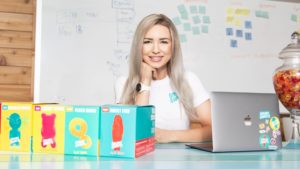One of the biggest issues that have faced students for decades is the problem of bullying. Bullying is an issue that schools have worked hard to combat in many different ways, some have found adequate solutions while other schools still struggle to figure out just how to put a stop to bullying. Sometimes the bullies can’t be stopped because those who are bullied aren’t willing to come out and say who the bully is. Brandon Boynton, a successful young entrepreneur has created a new way to help combat bullying in schools. The BullyBox is an online platform that can anonymously get students in contact with school administrators to report bullying. Being bullied in school himself Brandon wanted to help students escape the pain he felt from bullying.
For some entrepreneurs, their drive is inspired by personal trauma experienced, this is what pushed Brandon to create such a successful product. One of the great things about The BullyBox is that it is anonymous, it is hard for many students to go to the school administrators to point out who it is that is bullying them this platform helps bullied students feel safe in standing up for themselves. The platform also encourages others to stand up for those being bullied, Brandon wanted the application to be used not only for those being bullied but those who saw what was happening and could help put a stop to bullying behavior.
Brandon Boynton hit spot on, one of the most important parts of developing a product and business, looking for pain and developing a solution. Bullying was a pain he knew existed not only because of how much it is talked about in school but because he had experienced it himself. It took a clear and present pain and developed a product to help alleviate it. The BullyBox is now being used in many different schools across the US.

 skyrocketing (
skyrocketing (

